- Home
- Patrick Robinson
Scimitar SL-2 (2004) Page 32
Scimitar SL-2 (2004) Read online
Page 32
President Bedford nodded. “I guess that’s about as decisive as it gets,” he said. And Arnold spread out the big chart of the Atlantic in front of them and began a recap on the scale of the problem.
“Taking a point 400 miles from the island of Montserrat…puts him around here at midnight…twenty-four hours later, he’s probably here if he’s steaming through these unpatrolled waters at around 12 to 15 knots…That puts him right here tonight and probably here tomorrow night…That ship he’s in will have to move very slowly over the SOSUS wires, maybe 6 knots all the way across here…That’s only 150 miles a day…Won’t reach the datum until October 9, right?…Bang on time, son of a bitch…”
“The question is, sir,” said Admiral Dickson, “will he ever get that far? Maybe he’ll just stand off and let fly with his missiles from maybe 1,000 nautical miles out?”
“We can’t let him, Alan,” said Arnold Morgan. “We cannot let him.”
“Hard to know how to stop him.”
“Hard but not impossible. Question one. How do his missiles get their guidance?”
“They just hook up with the world global navigation system, the GPS,” replied Admiral Dickson. “Steers them right in. The satellite does the rest. Punch in the numbers and fire ‘n’ forget.”
“Question two, Alan. Who owns the GPS?”
“Essentially, we do. There’s twenty-seven satellites up there orbiting the earth every twelve hours. All American Military, made available to all the world’s navigators. They’ll guide anyone home, friend or foe.”
“Correct. So, Question three. How do we stop this bastard tuning his missiles into our satellites and homing in on the volcano’s crater?”
“Well, I guess we could switch ’em all off, so nobody could access them.”
“Correct, Alan. And that would do just what I want him to do—drive him inshore. Because when he comes to the surface to check his GPS, his screen will read, ‘Satellites nonoperational at this time.’ And that will leave him no option. He’ll have to fire visually, and that’ll bring him in to around 25 miles from La Palma. Right there he will be forced to loose off his missiles using visual range and bearing only.
“And that’s where we have a chance. Because we’ll have our frigates and helos combing the area. When he comes to the surface for a visual fix, we might just pick him up him first time. And even if he gets his missiles away, we have two and a half minutes’ flying time to locate and kill with a SAM. Failing that, we’ll have to rely on ground missiles, probably Patriots, set in a steel ring around the volcano…Take ’em out before they hit.”
“It’s going to take a lot of very brave men to man that missile battery up there on top of the volcano,” said the President.
“We got a lot of very brave men,” replied Arnold Morgan, sharply.
“Will a nuclear warhead detonate if a Patriot slams into it, in midair?” asked the President.
“Probably not, sir,” said Arnold. “These things do not explode on impact. You have to make them explode with split-second timing, crashing the two pieces of uranium-235 directly into each other with high explosive and stupendous force, accurate to a hundredth of a second. A couple of hundred pounds of TNT designed to blow the entire rocket to smithereens, on impact, will not fulfill those explicit timing credentials. But it’ll sure as hell disable it, and knock the damn thing into the sea.”
“What are our chances?”
“They’re very good, once we switch off the GPS.”
“I was coming to that,” replied President Bedford. “I assume we can’t just shut it down and leave it at that, can we? I mean, what about all the navigation, all over the world…Christ, there’d be ships running aground all over the place, wouldn’t there?”
“Sir, if we just shut off the GPS,” said Arnold, “I’d say we’d have a couple of dozen supertankers high and dry on various beaches within about five hours. The rest would be turning around in large circles, baffled by that most ancient of skills, or lack of it.”
“You’re right there,” said Admiral Dickson. “Most merchant ship navigators couldn’t find their way out of the harbor without GPS. And most of them have grown up with it. We’ve had military satellites up there since the early 1970s.
“Your average navigator on a big freighter or a tanker knows nothing else. And there are probably four thousand yachtsmen at any one time groping around the oceans entirely dependent on the GPS to find their way home.”
“Who runs GPS?” asked the President.
“Fiftieth Space Wing’s Second Space Ops Squadron, out at Falcon Air Base, Colorado,” said Arnold. “The full name of the system is NAVSTAR GPS. It’s really a constellation of satellites orbiting the earth, a space-based radio-positioning and time-transfer system. It provides incredibly accurate data position, velocity, and time. That’s PVT in the trade.
“Over the years, it has become a worldwide common grid, easily converted to other local datums, passive, all-weather operational, real-time and continuous information, and survivability in a hostile environment. It’s a twenty-four-hour navigation service. And it’s all-American, totally controlled from Colorado. We put all the satellites up there, right on the back of a Delta II expendable launch vehicle, out of Cape Canaveral, Florida.”
“And we can make the system nonoperational?”
“We can do anything we damn please,” said Arnold. “But we will have to give ample warning to the international community, otherwise the consequences might be horrendous.”
“It beats the hell out of me why we ever made this military asset available to everyone else,” said the President. “Especially since the darn thing is so accurate.”
“Left to the military, it would not have happened. But Clinton’s Vice President, the great universal do-gooder, insisted. Of course the Military were furious, but Al’s boss did not think much of the Military, and that’s why we got a bunch of deranged Muslims able to fire accurate missiles anywhere they like.”
Even Paul Bedford laughed at this vintage Morganian discourse, despite a certain loyalty to a fellow Democratic President.
“So when do we switch ’em off, Arnold?”
“Well, if the submarine’s making 600 miles a day, and he’s aiming to arrive and fire instantly, immediately making his getaway, I’d say he’ll be within 200 miles of his launch zone by midnight on October 7. He’ll probably take a satellite fix in the small hours of the morning of the eighth, and then keep steaming in to his ops area. I guess we better shut the GPS off at midnight on Wednesday the seventh, and keep it off until either we destroy him or he fires his missiles.”
“That may be forty-eight hours with the world’s navigation system nonoperational?” said Paul Bedford.
“Correct,” said Arnold. “But at least they’ve got eight days to learn how to use a sextant and take a look at the stars and study the positions of the sun, and make their timing from GMT. Do ’em good. Turn ’em into proper sailors.”
“No alternative, is there?” replied the President.
“None that I can see. We have to switch off the GPS. Blind him. Drive him inshore. Force him to periscope depth.”
“Which side of the island?” asked President Bedford, peering at the charts.
“Oh, he’ll come east, right, Alan? Frank?”
“Not much doubt of that,” said Admiral Doran. “At least, that’s what I’d do. First, because I don’t want to get turned over by the tsunami, which I would be if I were west of the impact when the mountain collapses. And second, because I could tuck myself right in here…”
Frank pointed at the chart with a pencil, aiming at the waters to the northwest of the island of Gomera. “Right there,” he said, “I’m in 1,000 feet of deep water with the land behind me. Sonars are never as good looking into the land, and that’s what I’d be thinking—that I was trying to evade other submarines.
“I’d try to make it hard for the guys who were looking for me. I’d run deep and slow. Then I’d make my run i
n, right through this deep water, 7,000 feet on the chart, still moving slowly. I’d come to PD, take my mark on the island, one of these mountain peaks, get my range and bearing, then go deep again. Right here, 25 miles out I’d give myself a new visual check, then I’d fire two missiles, fast. Then head for shelter, probably behind Gomera or even Tenerife—away from the tidal waves.”
“Jesus,” said Paul Bedford. “I’m glad you’re on our side.”
“The only trouble is, Mr. President,” said Admiral Morgan, “we have just one slight glitch.”
“Lay it on me.”
“There is just one other smaller satellite system up there that we do not control. It’s the European GPS, the Galileo Project, which is still dwarfed by our own system. But it’s there, and it works, and anyone can get into its guidance system. I imagine our Hamas opponents are aware of this. But they must realize we will pull every trick in the book to screw ’em up. Therefore we must be aware of the problem. They might be navigating close in by the European system only.”
“We have to use everything in our power to blind our enemy,” replied the President.
“Which means, sir, I am about to award you a fairly disagreeable task…the central satellite we have to silence is called Helios. It’s French and someone has to deal with ’em. And you know how cooperative they’re likely to be if they get a call from Washington asking them to switch off their very own GPS…
“Sacré bleu, and all that Gallic bullshit,” added Arnold. “And there is one other irritation that might actually turn out to be of major significance—when the Europeans began work on Galileo six years ago, they rowed in China for a 10 percent share. Cost Beijing $400 million. Gave ’em not only the China-Europe Global Navigation Satellite System, they all agreed the Technical Training and Co-Operation Center would be based in Beijing. We now see China as our geostrategic rival of the future.”
“China, always damn China,” said the President. “And you mean I have to tackle all of that? Because you know darned well the French will immediately say they have to ask Beijing.”
“Well, we’ll ask Master Control Station at Falcon Air Base to send a request direct to Paris first,” said Arnold. “Then we’ll try frightening the French to death by telling ’em the tsunami will also flood their Brittany coastline, which it will. Then we’ll have to go President-to-President.”
Arnold Morgan paused, somewhat theatrically, then continued.
“And if none of that works, Mr. President, we shall be obliged, on behalf of this great nation, both morally and ethically, under the laws of Almighty God and Man, to shoot the fucker clean out of the stratosphere.”
10
MEANWHILE, the evacuation of the East Coast had begun. The Federal Emergency Management Agency (FEMA) had split the mammoth task into five main categories: the general public; State and Federal Government; Culture and Heritage; Commerce and Industry; and Public and Emergency Services.
President Bedford had already put a state of National Emergency in place, and immediately authorized the FEMA to oversee evacuation operations. They had handed over power to the Eastern Seaboard State Governments to mobilize local National Guard troops in all areas under threat. A principal part of the Guard’s duties was to patrol urban areas and “maintain control on the ground.”
Plainly, as soon as the gravity of the situation had sunk into the mind of the public, a widespread panic would be inevitable, which the criminal element would most likely be swift to exploit. The President warned that in any cases of looting, particularly of federal property, the National Guard was fully empowered to open fire.
A strategic review of the situation, and an assessment of the overall threat, had been under way since earlier that day. Contingency plans were being finalized, and battalions of U.S. Army forces were already rumbling down the highways towards Washington, D.C., and the other three major cities of Boston, New York, and Philadelphia.
The President’s next speech, currently being drafted feverishly by Henry Wolfson, would warn of the specific effects of a 150-foot wall of water racing through the coastal shallows and thundering into the streets. It would be similar, he wrote, to the murderous destruction caused by the exploding island of Krakatoa: unstoppable, devastating, and certain death for anyone who remained in its way.
The chaos would be wholesale, the water would level almost anything that stood in its way. Huge waves would continue to pound the coastline after the initial shock. Great tracts of land maybe 15 miles from the beaches would be absolutely wiped out, power supplies damaged, communications severed, and there would be widespread saltwater flooding, fatal to infrastructure equipment and installations, such as power stations and domestic water utilities. Henry Wolfson actually managed to frighten himself.
The drift of this first draft was that every citizen had a duty to his country in the face of the oncoming onslaught from the deep. Every family should attempt to find its own point of refuge, driving to friends or relatives who resided inland on higher ground, but some people should remain in the city for several days, if possible, to assist employers with the packing and removal of all items of value—principally from the Federal Government but also from private commerce. A special department was being set up to record when families vacated their homes and precisely where they would reside during the coming catastrophe.
The evacuation of the poorer areas was an even more pressing dilemma, especially with regard to those under criminal justice supervision. Many did not have their own transportation or a place to go. Local authorities were being instructed to provide both, somehow—buses, trains, and reception areas, utilizing schools and community halls beyond a 20-mile radius. They were already contacting towns and cities in nearby counties to the west and northwest, where the Blue Ridge Mountains leave Virginia and cross the border into Maryland.
The President’s seven o’clock speech was dramatic. The East Coast population, already stunned by the resignation of President McBride, now had to swallow the enormous significance of the mega-tsunami. The entire concept was so outrageous that people seemed unable to grasp this mammoth intrusion—the specter of the destruction of the entire East Coast of the United States unacceptable and unimaginable.
People sat transfixed in front of their television screens as President Bedford outlined the opening steps everyone had to take in order to survive and preserve what must be preserved.
The first signs of panic began almost as soon as he concluded the address. The White House switchboard was jammed by thousands of calls. The largest number of viewers in living memory hit the wires to the television networks, demanding more information. There was a late-night run on gasoline, lines quickly forming up and down the East Coast as people prepared to fill up and move inland, right now, never mind October 9.
On the heels of the President’s announcement, the Department of Transportation announced that as of Monday morning, October 5, all ports and airports on the East Coast would be closed to incoming ships and aircraft—except for those aircraft specifically designated for evacuation purposes.
The London tabloids, five hours ahead of Washington, set the tone for the media bonanza, ruthlessly joining together the two American news stories, and the papers appeared on the streets by two o’clock, East Coast Time, on Wednesday morning, September 30.
MAC CRACKS UNDER TERRORIST THREAT, shouted the London Daily Mail’s headline, in end-of-the-world type, above a subhead that read:
U.S. PRESIDENT MCBRIDE QUITS
WHITE HOUSE TYRANT MORGAN RECALLED
One single large photograph of the new President was captioned: PAUL BEDFORD TAKES THE OATH WITH ADMIRAL ARNOLD MORGAN AT HIS SIDE.
It was in fact a dazzling front page, and all the twenty-four-hour American television news channels were showing it before 3 A.M. The Mail devoted six pages to the story, the lead being written by its star political feature writer Tony Pina.
On a bright October afternoon of pure political theater, Charles McBride resigned yes
terday as the 44th President of the United States. He left secretly by Navy helicopter from the lawn outside the Oval Office.
Minutes later, Vice President Paul Bedford was sworn into office before a select group of military chiefs, which included the former National Security Adviser Admiral Arnold Morgan, the Chairman of the Joint Chiefs General Tim Scannell, and the heads of the United States Navy and Marine Corps.
Senator Edward Kennedy was also in attendance for the ceremony, which was conducted by Judge David Moore, who had been specially appointed by the Supreme Court.
Fifteen minutes into his Presidency, Paul Bedford summoned the White House Press Corps to the Briefing Room, where he explained that his predecessor had suffered a nervous breakdown and was under medical supervision at Camp David.
He then revealed that the United States has been under a monumental threat from a Middle Eastern terrorist group that has already blown up Mount St. Helens, the giant volcano in Washington State, and then exploded the simmering Caribbean volcano on the island of Montserrat on Monday night.

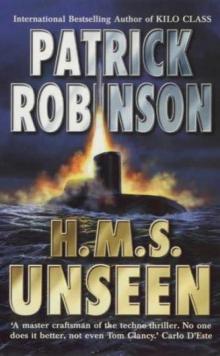 H.M.S. Unseen am-3
H.M.S. Unseen am-3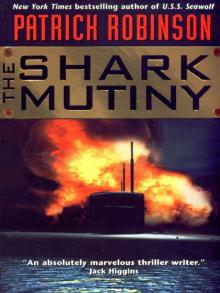 The Shark Mutiny (2001)
The Shark Mutiny (2001)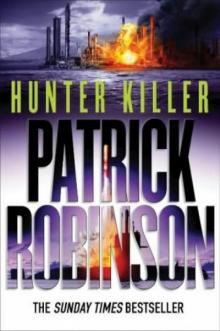 Hunter Killer am-8
Hunter Killer am-8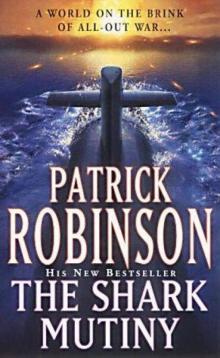 The Shark Mutiny am-5
The Shark Mutiny am-5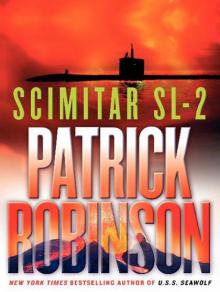 Scimitar SL-2
Scimitar SL-2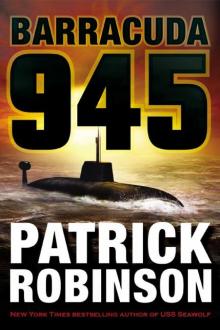 Barracuda 945 am-6
Barracuda 945 am-6 Hunter Killer
Hunter Killer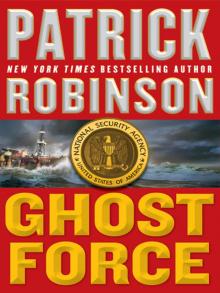 Ghost Force
Ghost Force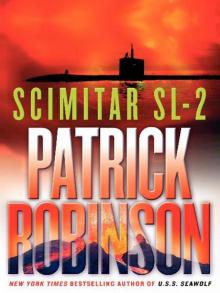 Scimitar SL-2 (2004)
Scimitar SL-2 (2004)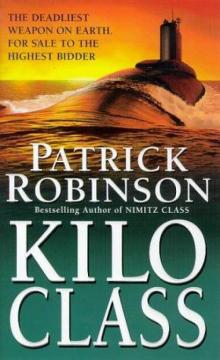 Kilo Class am-2
Kilo Class am-2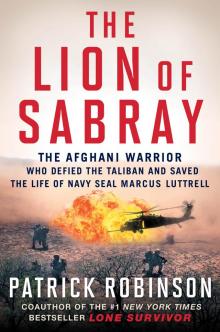 The Lion of Sabray
The Lion of Sabray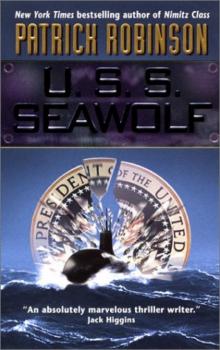 U.S.S. Seawolf am-4
U.S.S. Seawolf am-4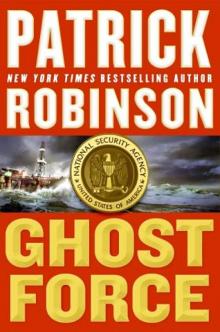 Ghost Force am-9
Ghost Force am-9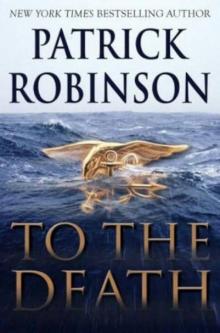 To the Death am-10
To the Death am-10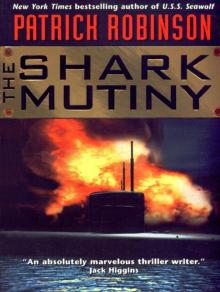 The Shark Mutiny
The Shark Mutiny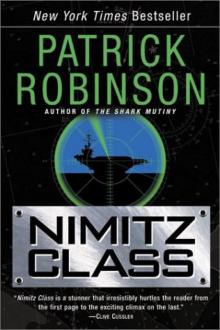 Nimitz Class am-1
Nimitz Class am-1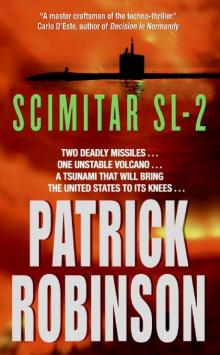 Scimitar SL-2 am-7
Scimitar SL-2 am-7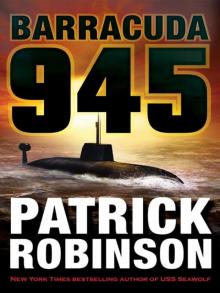 Barracuda 945
Barracuda 945 Intercept
Intercept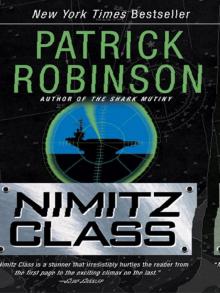 Nimitz Class (1997)
Nimitz Class (1997)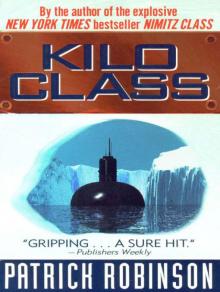 Kilo Class
Kilo Class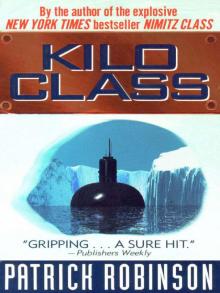 Kilo Class (1998)
Kilo Class (1998) Diamondhead
Diamondhead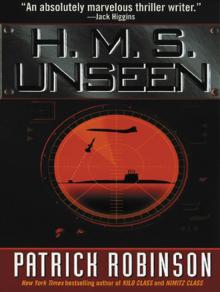 H.M.S. Unseen
H.M.S. Unseen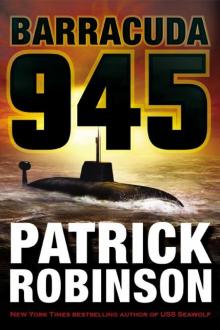 Barracuda 945 (2003)
Barracuda 945 (2003)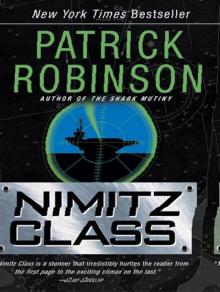 Nimitz Class
Nimitz Class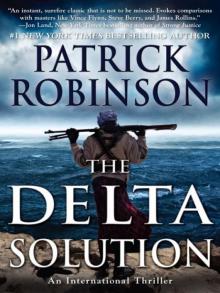 The Delta Solution
The Delta Solution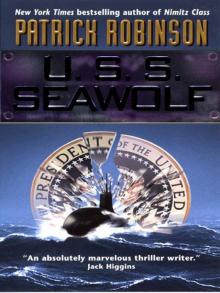 U.S.S. Seawolf
U.S.S. Seawolf